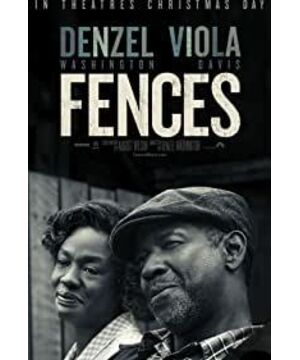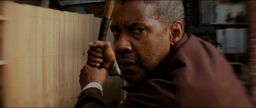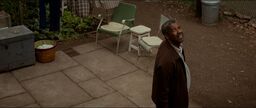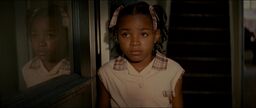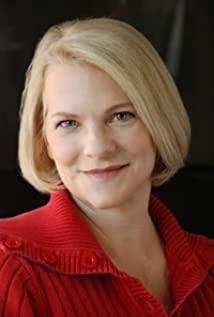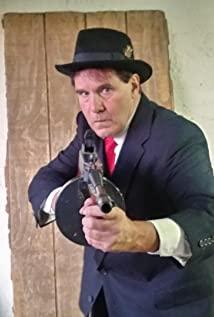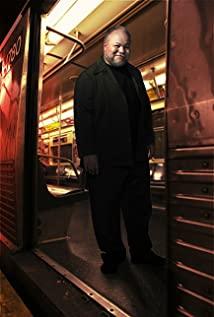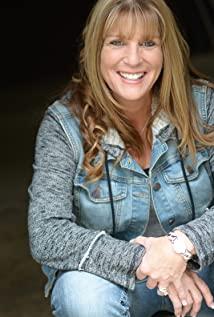After World War II, racism prevailed in the United States in the 1950s. In the film, the audience sees the world of black people at the bottom. Except for white friends who are also garbage workers, there are few white shots. This is a tragic world that belongs to black people and is isolated from the white class.
At the beginning of the film, with simple shots and the chatter of the male protagonist Troy, it outlines the working environment of Troy and his white garbage friend, a job that pays $76 a week. Even being a garbage truck driver is a white privilege. When Troy was young, as a black athlete, he was extremely talented in baseball, but he rarely got the chance to play, let alone get noticed. For blacks, America in the 1950s was a society full of walls and despair.
In the film, except for the scene where Troy collects the trash and waits for less than 3 minutes to see the chairman, all the other scenes never leave Troy's home, backyard and the street at the front door. The main characters in the camera are only seven people from the family: the male protagonist Troy and his white friend and work partner, his wife Rose, his brain-damaged brother, and three children from three mothers who are more than ten years old. The lover who gave birth to his daughter exists only in dialogue.
If the world outside the home is full of social class and racial barriers, then under the tiles and in the backyard without barriers, this family is full of human barriers, gender barriers. This self-righteous, humble, and desperate man is the god and god of this family. His emotions dominate the emotions of everyone in this family, because everyone depends on him to survive. In the film, men are ugly and motherhood is great. To support a home requires a man to earn $76 a week and a woman who is forbearing, hard-working, and yearning for decency.
"Fences" is like a window. In Denzel's black-style chatter, what we see is the despair and the tenacity and cruelty of people under apartheid, to live, to live with dignity, so hard, to be squeezed, and also Squeezing others, there is nothing to sing about, and it cannot be despised. Maybe a little bit of humanity remains, but in front of the instinct of living things, everything is so insignificant, and this instinct is to live and live. For this instinct, he ran away from home, took drugs, went to jail, got married, did the most humble and dirty job, usurped his younger brother's war pension, refused to help his eldest son, killed his younger son's football dreams, cursed death... ...he was meant to live anyway, and yet, he died first in the show. He was struggling and desperate, and at home, the bottle of whisky on the weekend was his most relaxed, happiest, and most chatty moments. The youngest son felt that Troy had never liked him; for Troy, the family wife and son meant his responsibility, for which he felt drained. He cheated, probably because he forgot this heavy responsibility from the momentary joy. Probably, he never thought that this joy would add a responsibility to him who was about to be drained. After a quarrel with his youngest son, he roared at Death who approached him. He ran away from home because of his father as a teenager, and his youngest son never saw each other again because he ran away from home. It was like fate, like reincarnation, and there was no escape.
In society, Troy is humble, and he is oppressed by society; when he returns home, he is the master, mastering his wife and son, bringing back his illegitimate son to raise his wife, and driving away his underage biological son. What he resists is approaching his death. Rose's laughter or tears were all because of him; to his son, he was like a debt collector, and they never laughed at each other. At the end of the film, before the funeral, through the eyes of the younger son, the audience sees the once messy backyard, surrounded by neat hardwood fences, with a small patch of dazzling flowers... At the time when this home seemed most promising, he died, The master and pillar of this home is gone...
Director and actor Denzel Washington, born in the mid-1950s in the outskirts of New York, coincides with the film's background era.
The release period of this film coincides with the resurgence of far-right forces around the world, and the social division in the United States has intensified the rise of white supremacy. The old barriers have been removed, but new ones are being laid one by one, and no one knows where the world will go. So, watching this memoir-style "Fences" at this time can make a feverish mind clear? Maybe when it's time to be drained, only the god of death can redeem... Amen!
View more about Fences reviews


